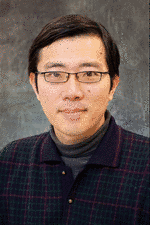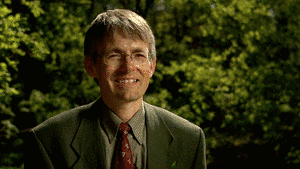Keynote Speakers
Tuesday, 9th September, 9:45 - 10:45
Network Communication with Social Awareness,
Prof. Felix Wu (UC Davis, USA)
Wednesday, 10th September, 8:45 - 09:45
FI-WARE and XIFI Projects demonstrating how the European FI-PPP is stimulating FI research,
Boris Moltchanov (Telecom Italia, Italy)
Thursday, 11th September, 9:00 - 10:00
The ICT sectors sustainability dilemma, to be both the savior as well as a part of the problem,
Dag Lunden (TeliaSonera, Sweden)
Network Communication with Social Awareness

- Prof. Felix Wu
The Internet development has somewhat shifted its focus from the end-to-end argument to content-centric, i.e., how to design a scalable
architecture to reliably identify and retrieve the contents we want. On the other hand, social media systems such as Facebook and Twitter have
provided another powerful and influential model for information propagation, which have changed many different aspects of our lives. By participating in online discussions, people exchange opinions on various topics or contents, shape their stances, and gradually build their own characteristics. In this talk, we will present a framework for identifying online user characteristics and understanding the formation of user deliberation and bias in online newsgroups. Under the SINCERE.se (Social Interactive Networks: Conversation Entropy Ranking Engine), we have designed a dynamic user like graph model to recognize user deliberation and bias automatically in online newsgroups. We evaluated our identification results with linguistic features and implemented this model under SINCERE as a real-time service. By applying this model to large online newsgroups, we study the influence of early discussion context on the formation of user characteristics. Based on our analysis results, we will then discuss potential new research directions for future Internet architecture.
Prof. S. Felix Wu has been doing “experimental” system research, i.e., building prototype systems to justify and validate novel architectural concepts. Since 1995, he and his students/postdocs have built many experimental systems in the areas of fault tolerant network, IPSec/VPN security policy, attack source tracing, wireless network security, intrusion detection and response, visual information analytics, and, more recently, future Internet design. An article titled “Networking: Four ways to reinvent the Internet” published in Nature 463 (February 3rd, 2010, by Katharine Gammon) provided a brief but very nice cover about his primary thought on a Social-network-based future Internet architecture. During the past seven years, he has been pretending (and hoping) to know a little bit more about humanity science so he can claim that he is working on multidisciplinary research. He strongly believes that thoroughly considering the factor of human relationships is necessary for any IT innovation. Therefore, his primary research objective, before he retires, is to help and contribute to the information technology advancement that would truly help our human society. As an initial step, he recently released the SINCERE (Social Interactive Networking and Conversation Entropy Ranking Engine, sponsored by NSF) search engine under http://www.sincere.se, which is trying to help our Internet society to discover “interesting/unusual” discussions. Felix received his BS from Tunghai University, Taiwan, in 1985, both MS and PhD from Columbia University in 1989 and 1995, all in Computer Science. He has about 120+ academic publications, which means that he should probably focus much more on the depth and quality. He is currently a Professor with the Computer Science department at UC Davis.
FI-WARE and XIFI Projects demonstrating how the European FI-PPP is stimulating FI research
Boris Moltchanov is a Service Innovation Manager of the Open Innovation Research Unit in Telecom Italia. He holds two degrees, an engineer degree in the information technology and computer since, and a bachelor degree in the management, marketing and world economy.
He joined Telecom Italia Lab (formerly CSELT) in 2000 and initially leveraged his skills and experience of IT security and Value Added Services to create innovative smart and secure services and solutions involving mobile terminals, SIM/SmartCards and Value Added Service platforms.
In the moment of the biggest Telecom Italia expansion in the International arena he had a responsibility of the evolution strategy and roadmap definition for VAS and Service Platforms for all the Telecom Italia’s subsidiaries abroad.
Currently he represents Telecom Italia in a number of EU projects addressing the service innovation bringing mutual benefits to the Telecom Italia innovation and to the European research.
He is an IEEE Senior Member, an inventor of few international patents and an author of many scientific papers and articles in books and journals, as well as an invited speaker in various conferences, workshops and other international events.
The ICT sectors sustainability dilemma, to be both the savior as well as a part of the problem

- Dag Lundén
The ICT sector can be seen as both “the enabler for a carbon free society” (quote: EU Commission) but also a part of the problem.
The sector itself (including the entertainment and media sector) stands for 3% of the emissions of greenhouse gases globally and approximately 7% of the electricity consumption within EU and the energy consumption and CO2 emissions continues to increase due to an increased usage of connected IT devices and data centers globally. At the same time ICT itself makes it possible to exchange or reduce the need for physical travels and intelligent monitor and management systems including sk “Smart Grid” solutions can increase the efficiency in new and existing transport systems and buildings with a factor of 10 if properly installed.
In the end it comes down to the fact that 1 years use of a telephone service (including the full life cycle and all calls) gives the same environmental impact as 1h of car drive (only fuel consumption) from a greenhouse gas perspective.
This key note speech will elaborate on the title above based on findings from a recent published academic study on the ICT sectors environmental impact for the whole of Sweden but also discuss the potential for the sector to support radical reductions in other sectors.
Dag Lundén work as environmental manager with in TeliaSonera. The work contains more or less the whole spectrum in the environmental field including corporate strategy, research, legislation and product development all the way to recycling and waste treatment. During the last couple of years the main focus has been on RoD within the area of energy efficiency and Life Cycle Assessment.
He joined Televerket Radio (Former Post and Telecom radio administration in Sweden, a pre assessor to TeliaSonera) in 1984 as an engineer within the field of digital microwave radio relay systems. After 5 years within the area he switched career and studied at the Royal Institute of Technology (KTH), partly in combination with a position as specialist within the area of real estate management. After the exam in 1995 he was employed as technical specialist within the area of land surveying and Geographic Information Systems (GIS).
Since 1997, he has had different positions within the area of environmental management and is a member of the Sustainability Team.
He has during his work as environmental manager been involved in research and activities as well as published papers and articles about travel management and meeting behavior in relation to environmental impact at local as well as on global level as well as studies about LCA of ICT products, systems and services, including studies how ICT can help society reduce its impact. He has also been involved in standardization and international collaboration within the ICT sector. Dag holds an MSc in Land surveying from the Royal Institute of Technology (KTH), Stockholm, Sweden.
